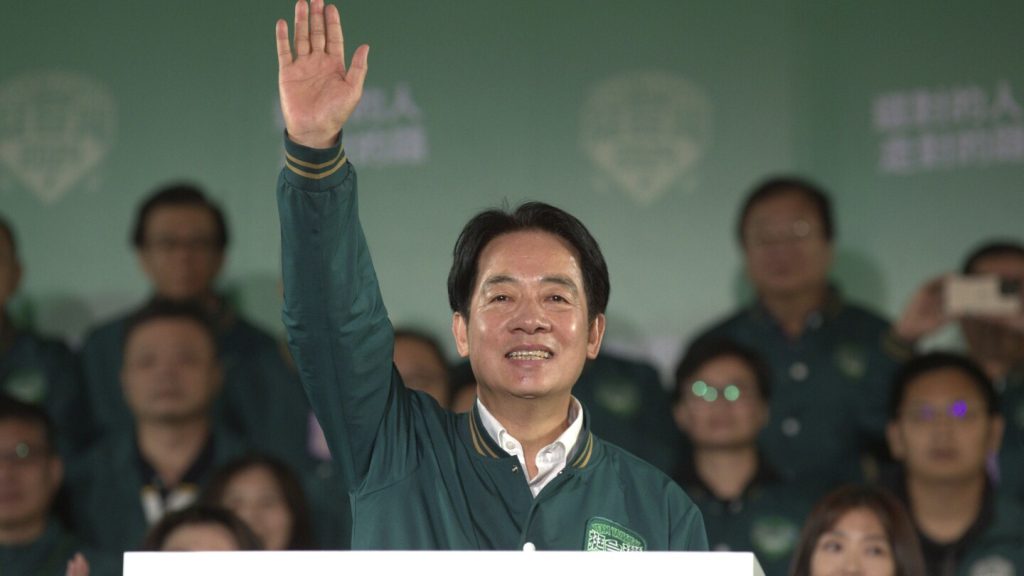Taipei (AP) – Lai Ching-te, Taiwan’s President-elect, is set to take office on Monday after running a campaign that emphasized his continuity with incumbent President Tsai Ing-wen. The ad featuring both leaders driving together symbolized Lai taking over the wheel from Tsai, who served for eight years and was unable to run again. Lai is expected to follow in Tsai’s footsteps, balancing Taiwan’s relationship with the United States and China, which claims Taiwan as its own territory.
Tsai, Taiwan’s first female president, has been credited with defending the island’s sovereignty from China and strengthening its partnerships with the U.S. and other democracies. Her legacy includes legalizing same-sex marriage, steering Taiwan through the COVID-19 pandemic, and modernizing the island’s military. Tsai leaves office with high approval ratings, reflecting Taiwan’s shift towards a separate identity from China, with a majority of residents identifying as Taiwanese rather than Chinese.
During Tsai’s tenure, Taiwan faced increased pressure from China, which has sought to isolate the island diplomatically and militarily. Tsai resisted Beijing’s efforts by diversifying trade relationships, increasing military spending, and elevating Taiwan’s international profile. Despite facing continuous pressure from China, Tsai maintained a stance of willingness to engage in dialogue with Beijing on mutually acceptable terms.
Lai, who served as vice president during Tsai’s second term, has positioned himself as a continuation of Tsai’s legacy. Initially known for his independence-leaning rhetoric, Lai has since softened his stance and now focuses on maintaining the status quo across the Taiwan Strait. He aims to further strengthen ties with the U.S., which serves as Taiwan’s unofficial ally and provider of defense support. However, uncertainties remain in the face of potential changes in U.S. administrations and their impact on Taiwan’s relations with Washington and Beijing.
On the domestic front, Tsai’s tenure saw Taiwan making significant strides, including legalizing same-sex marriage and pursuing reforms in pension, labor, and military conscription policies. Despite initial success in managing the COVID-19 pandemic, public opinion remains divided on Tsai’s domestic policy record. The Democratic Progressive Party (DPP), to which Tsai and Lai belong, faced challenges in local elections and lost its majority in the legislature, indicating areas for improvement in grassroots party machinery.
As Lai prepares to take office, he is expected to continue Tsai’s focus on balancing Taiwan’s relationships with the U.S. and China while advancing domestic reforms. His leadership will be tested in navigating uncertainties in foreign policy, particularly with regards to Washington’s stance towards Taiwan. Meanwhile, Taiwan’s evolving identity and relationship with China will continue to shape its political landscape under Lai’s administration.


